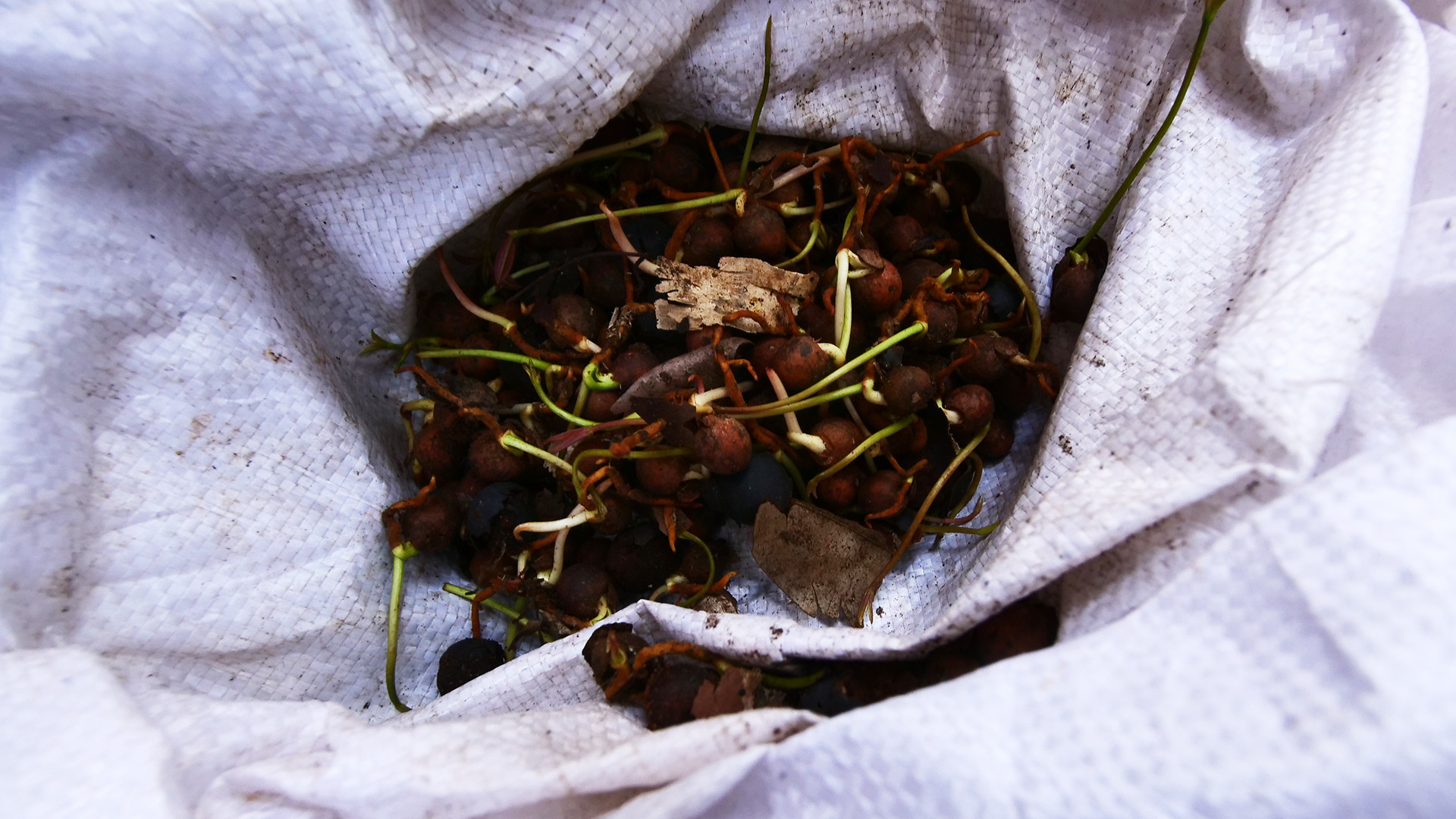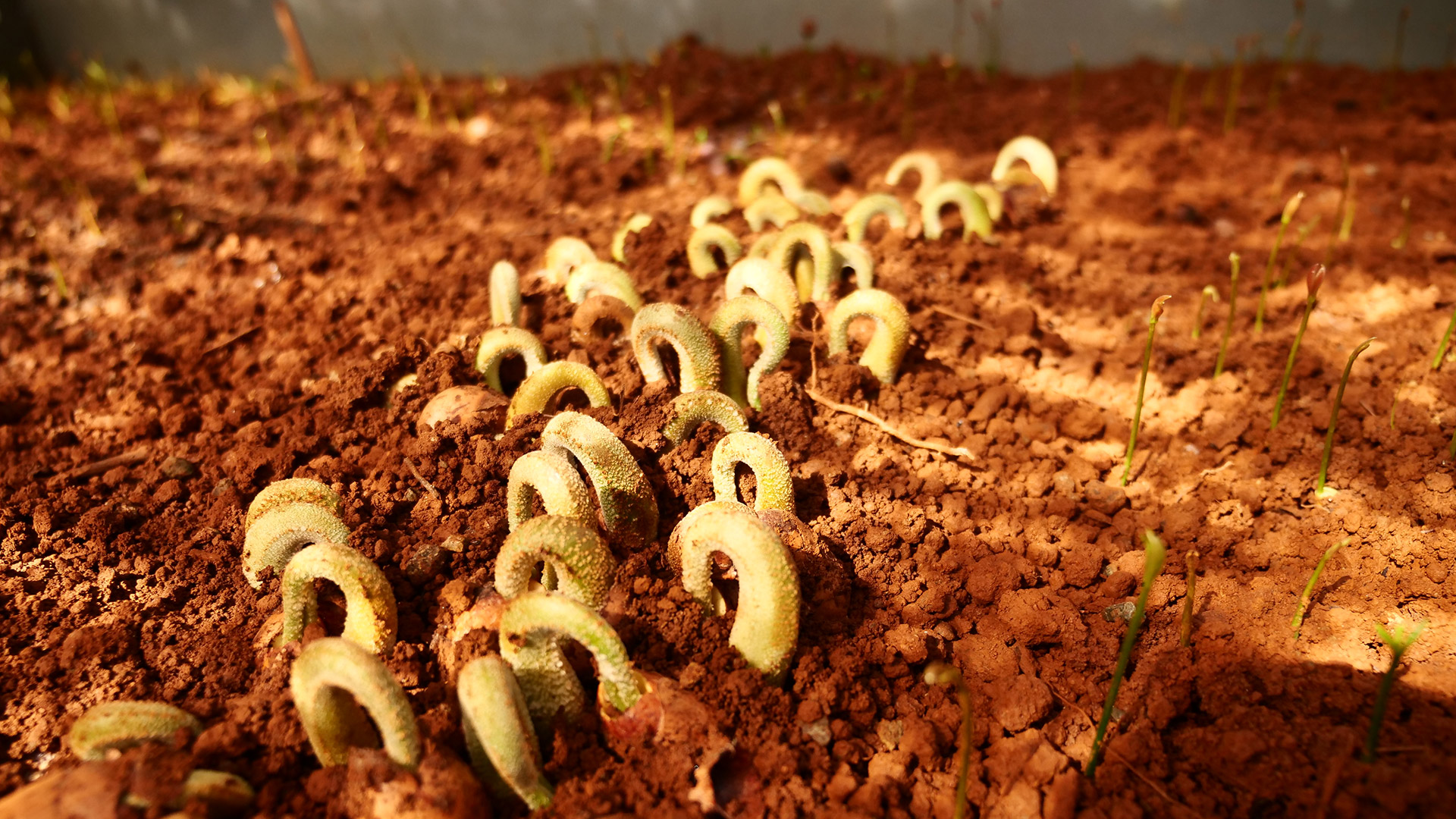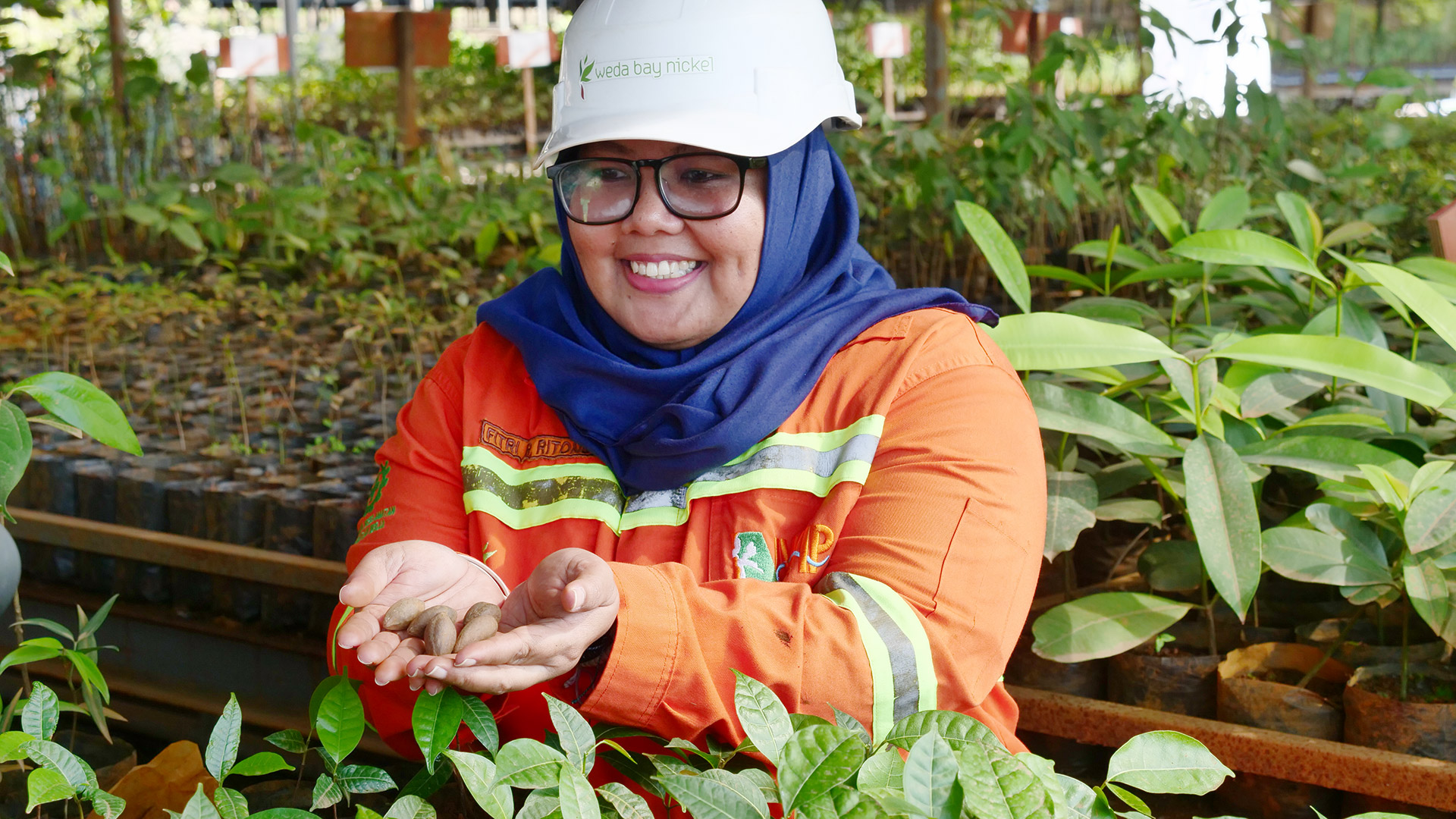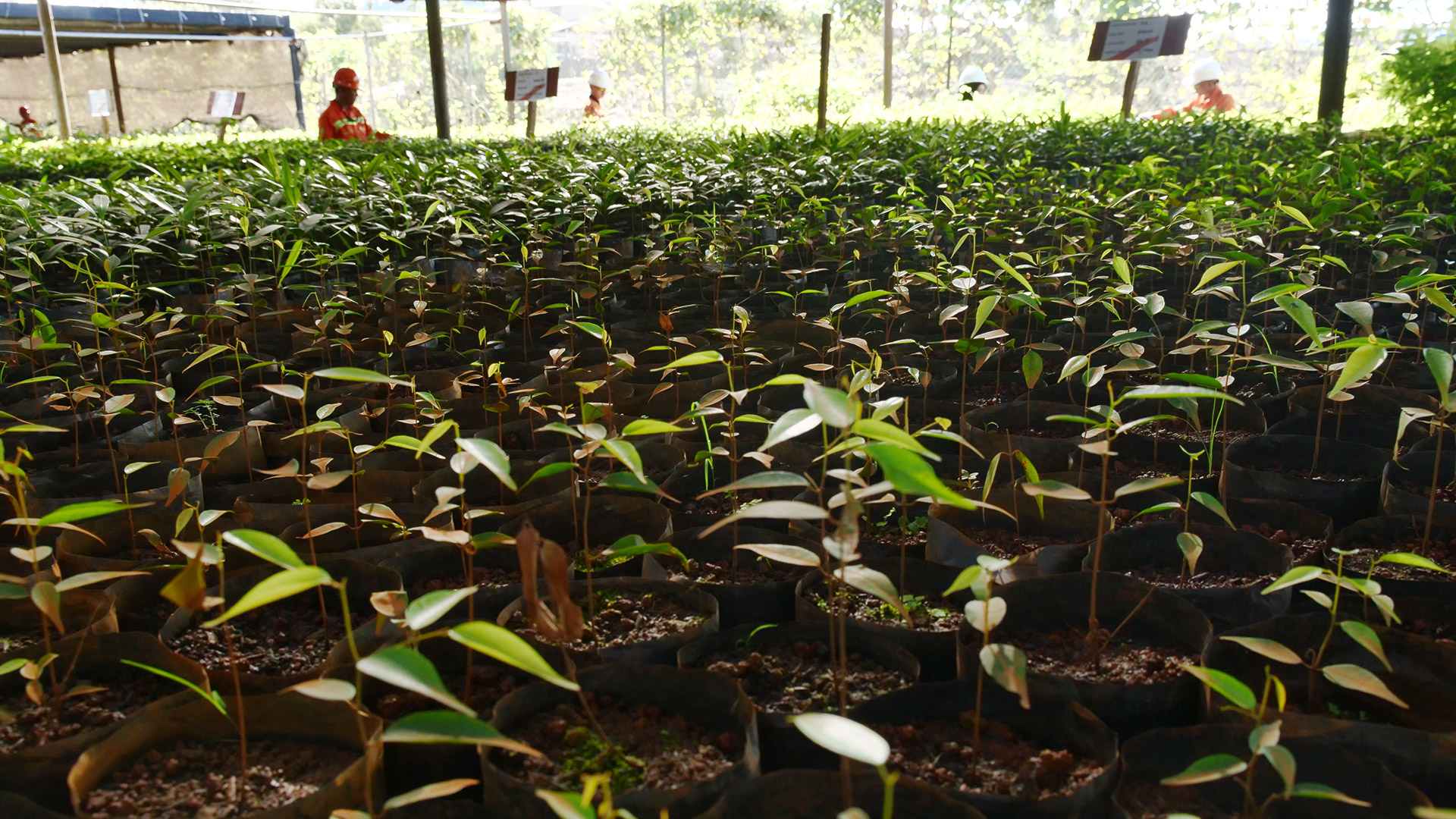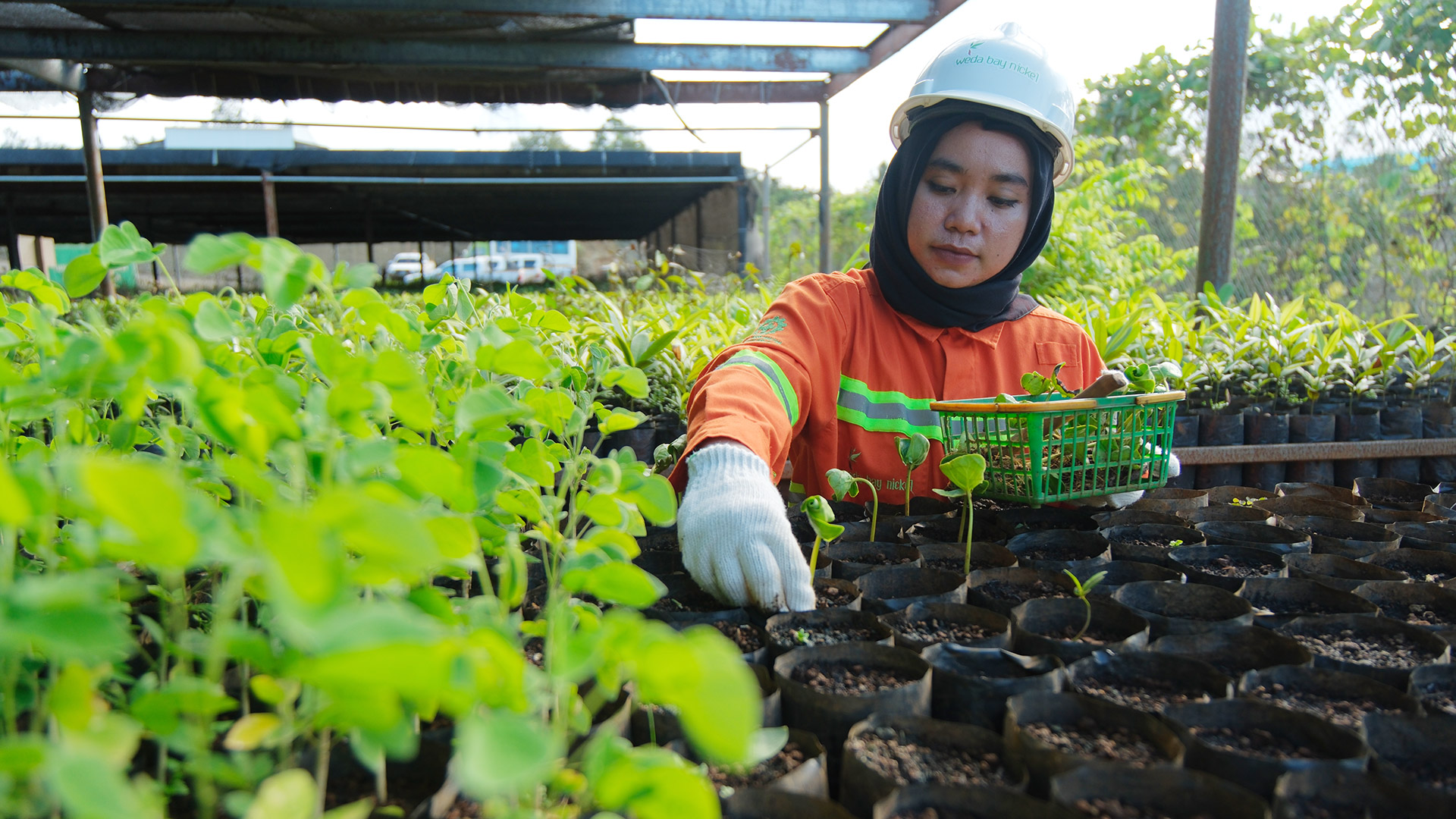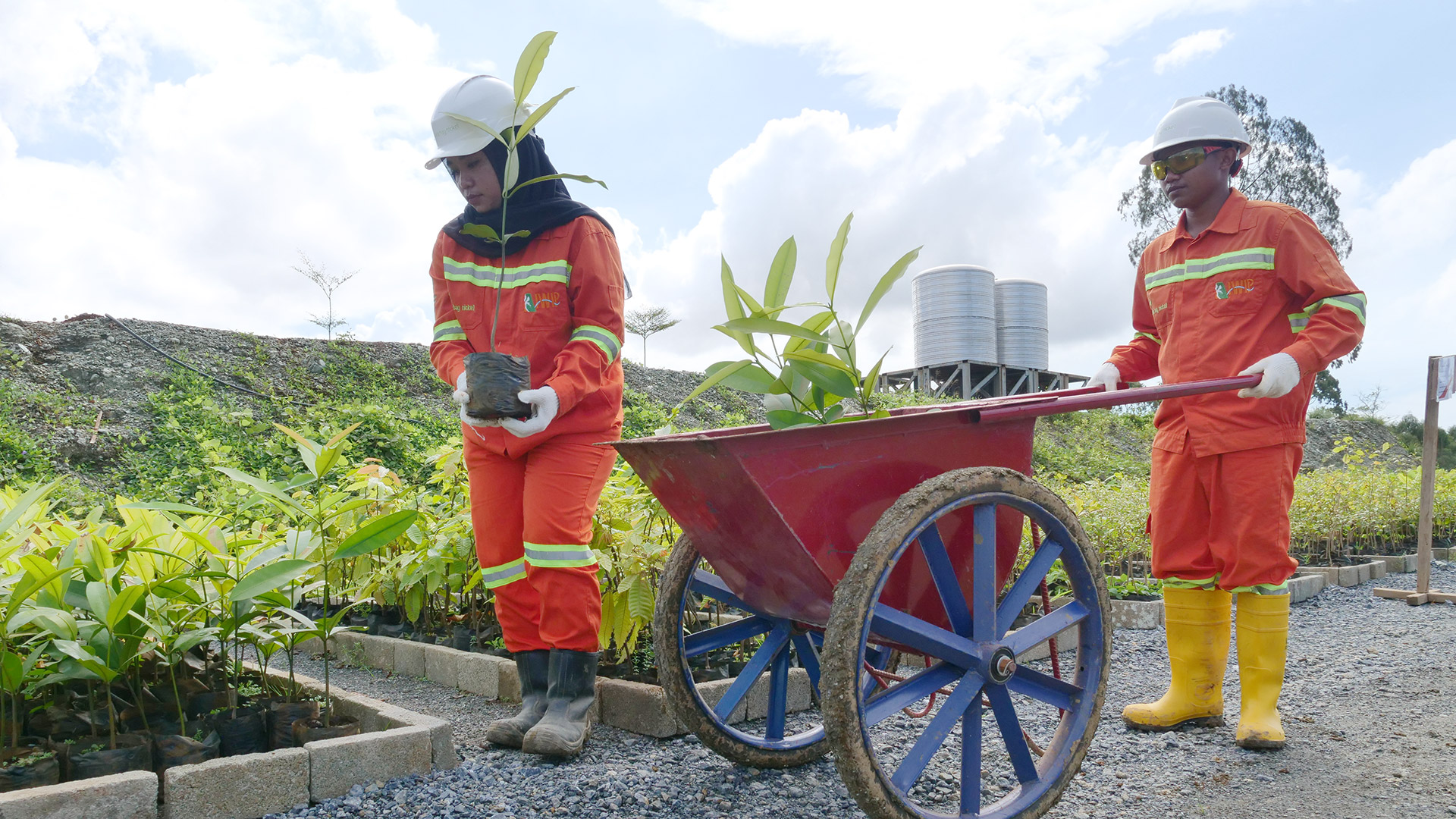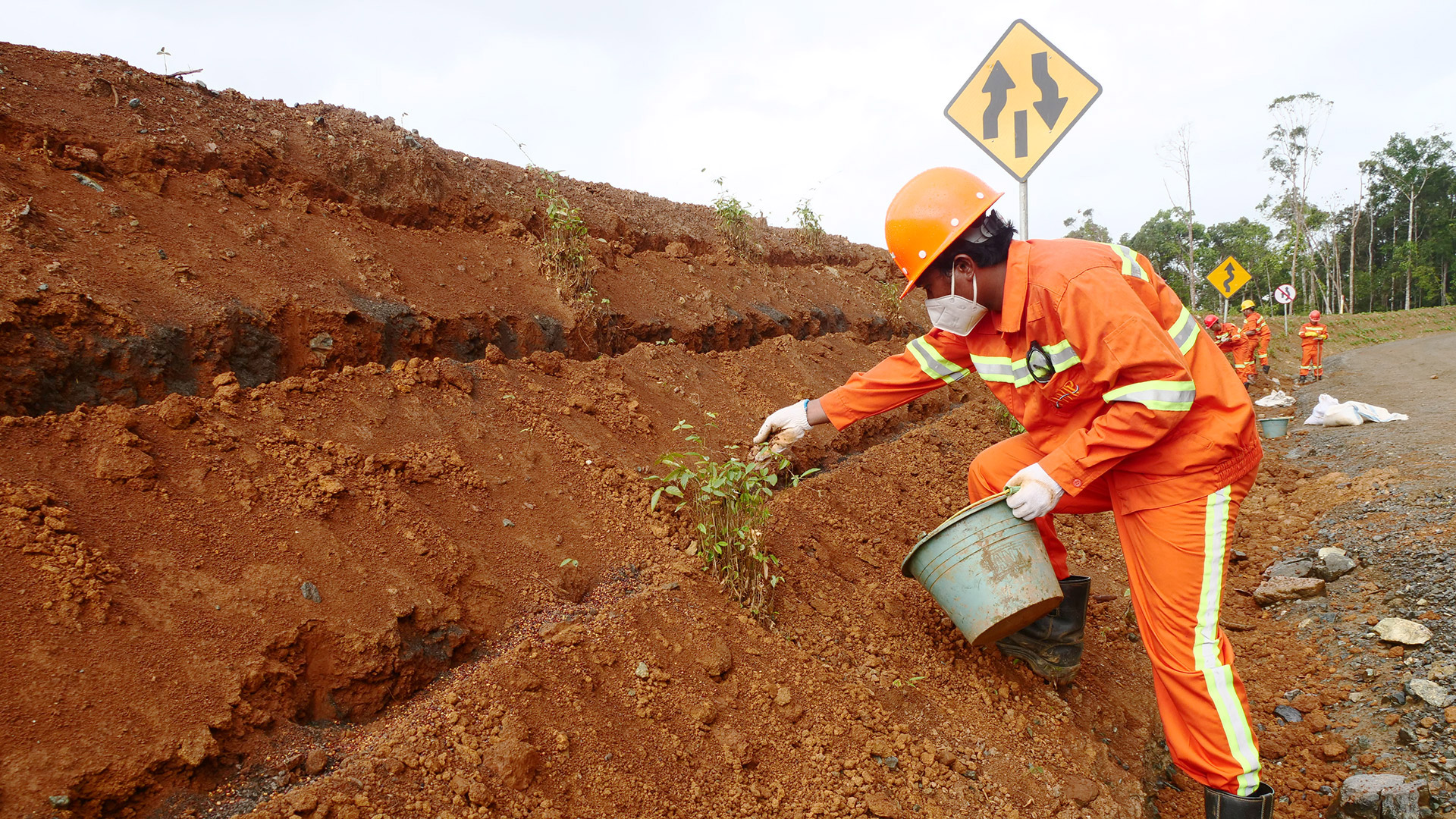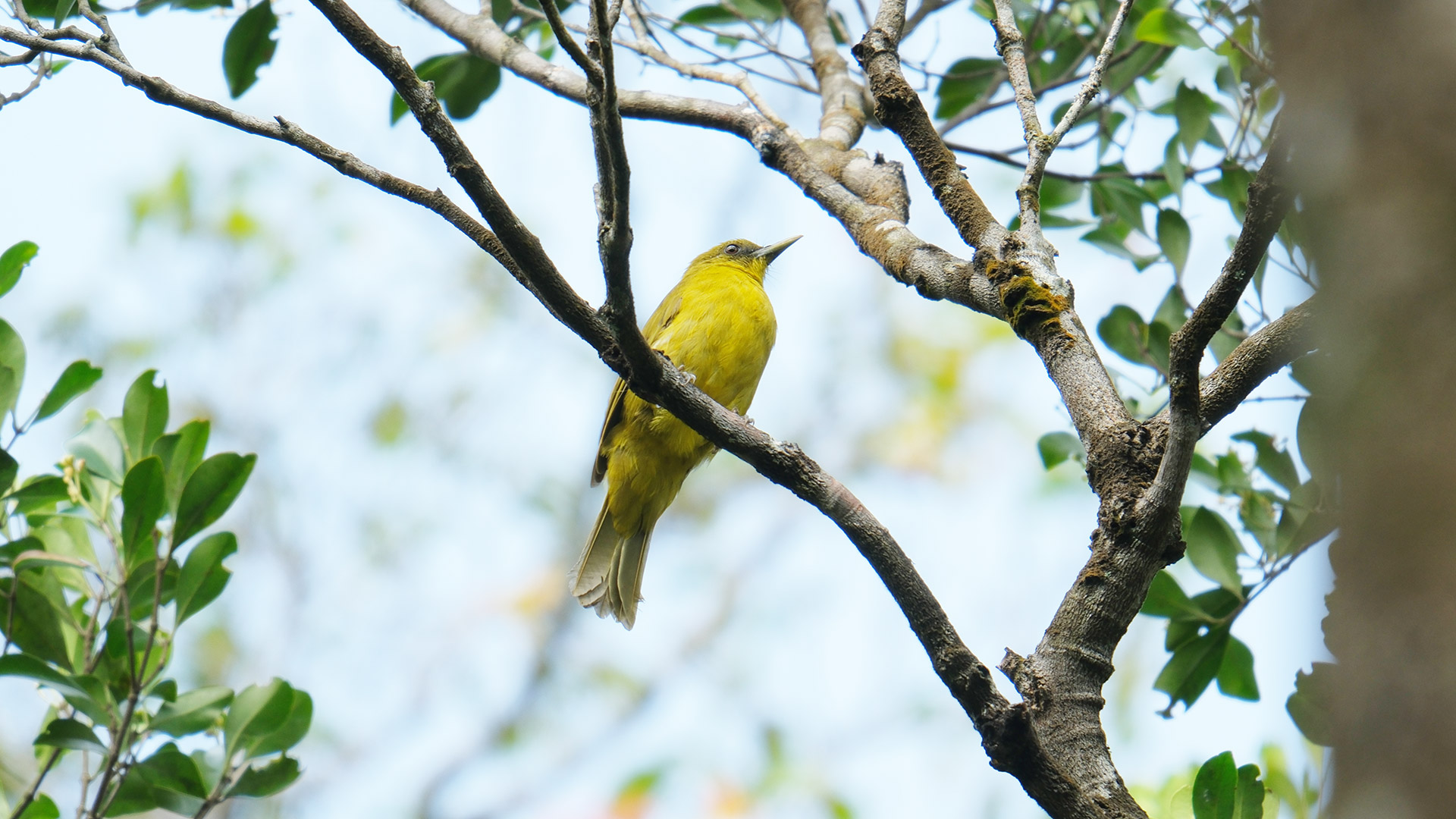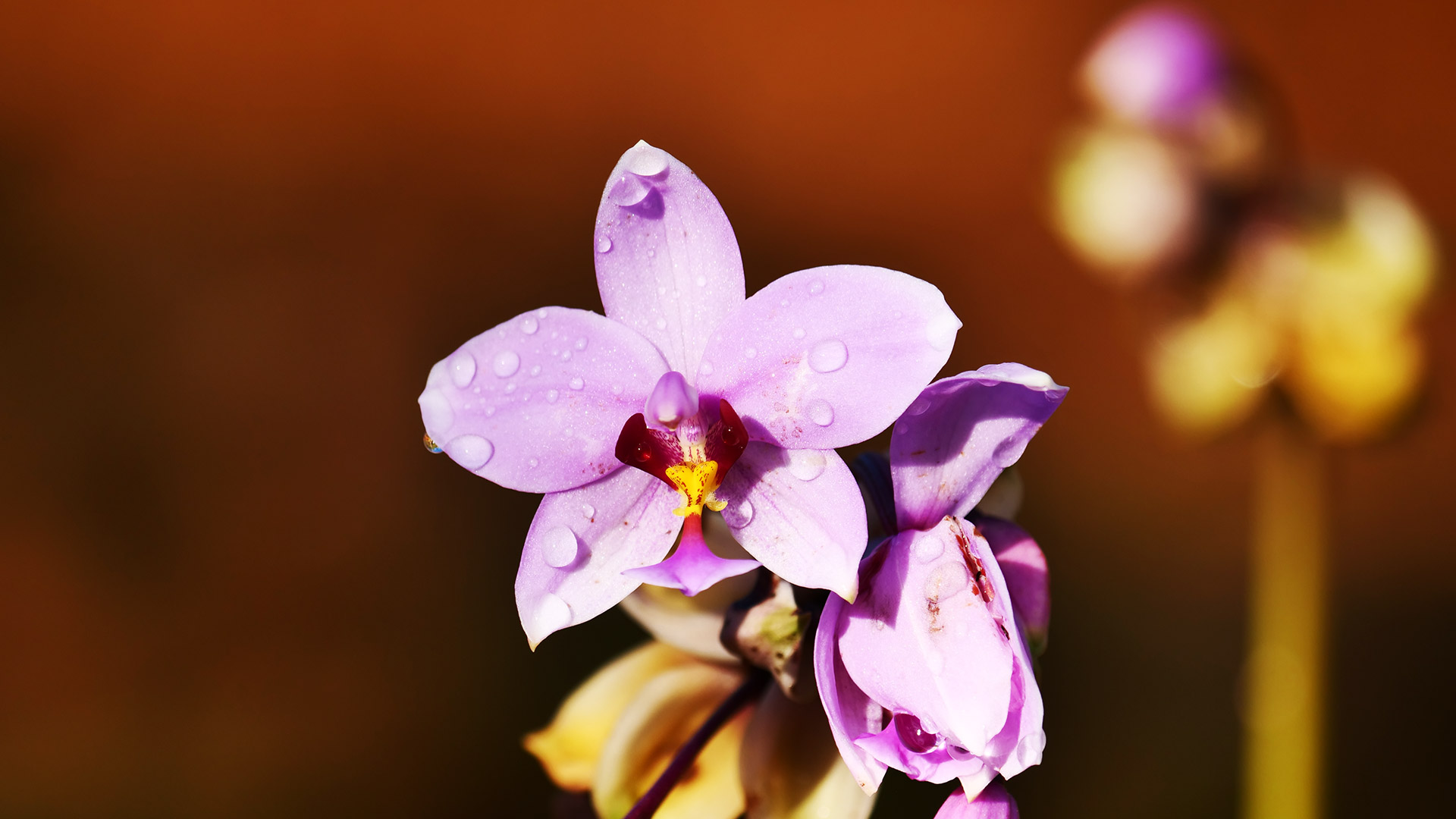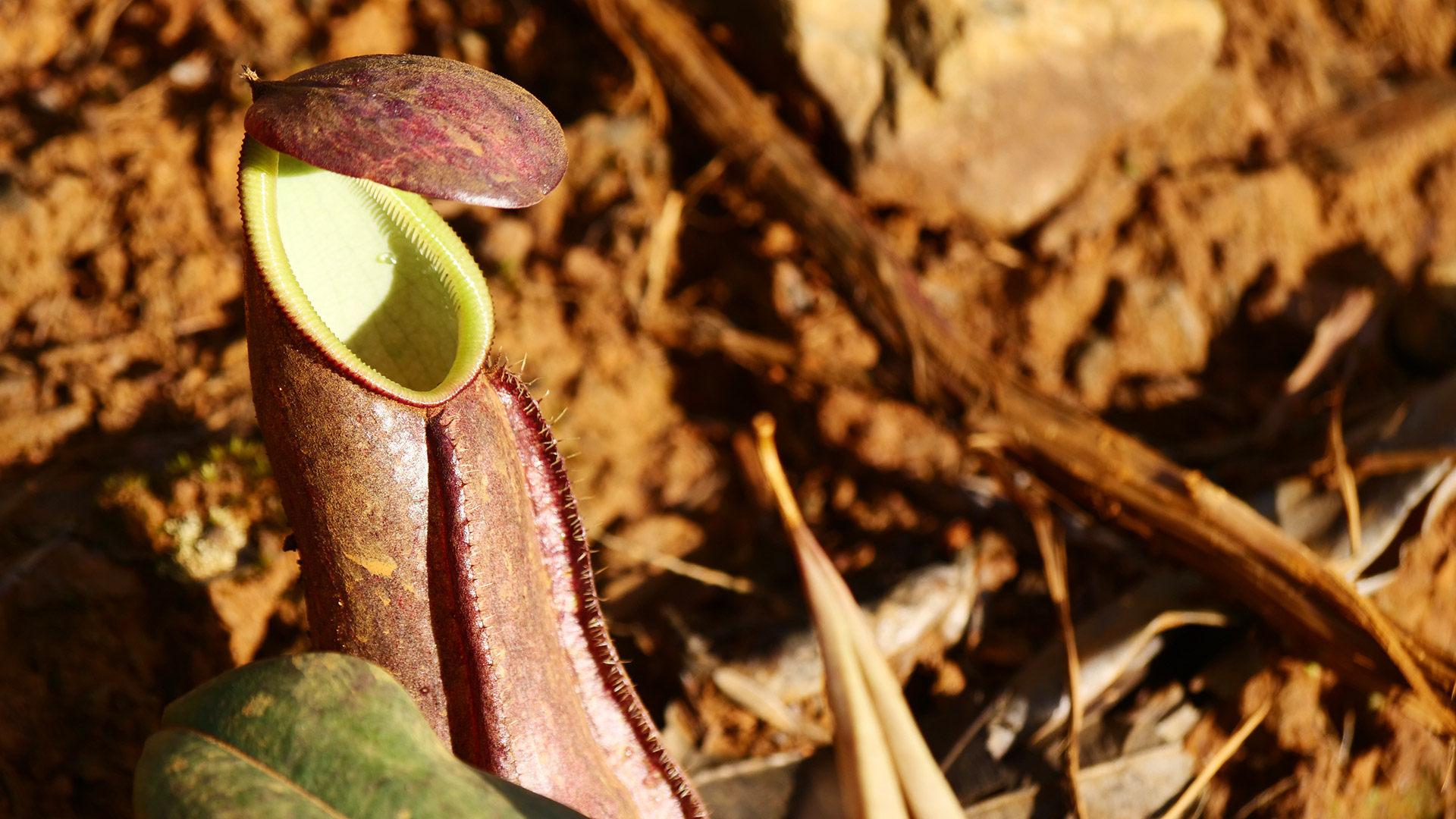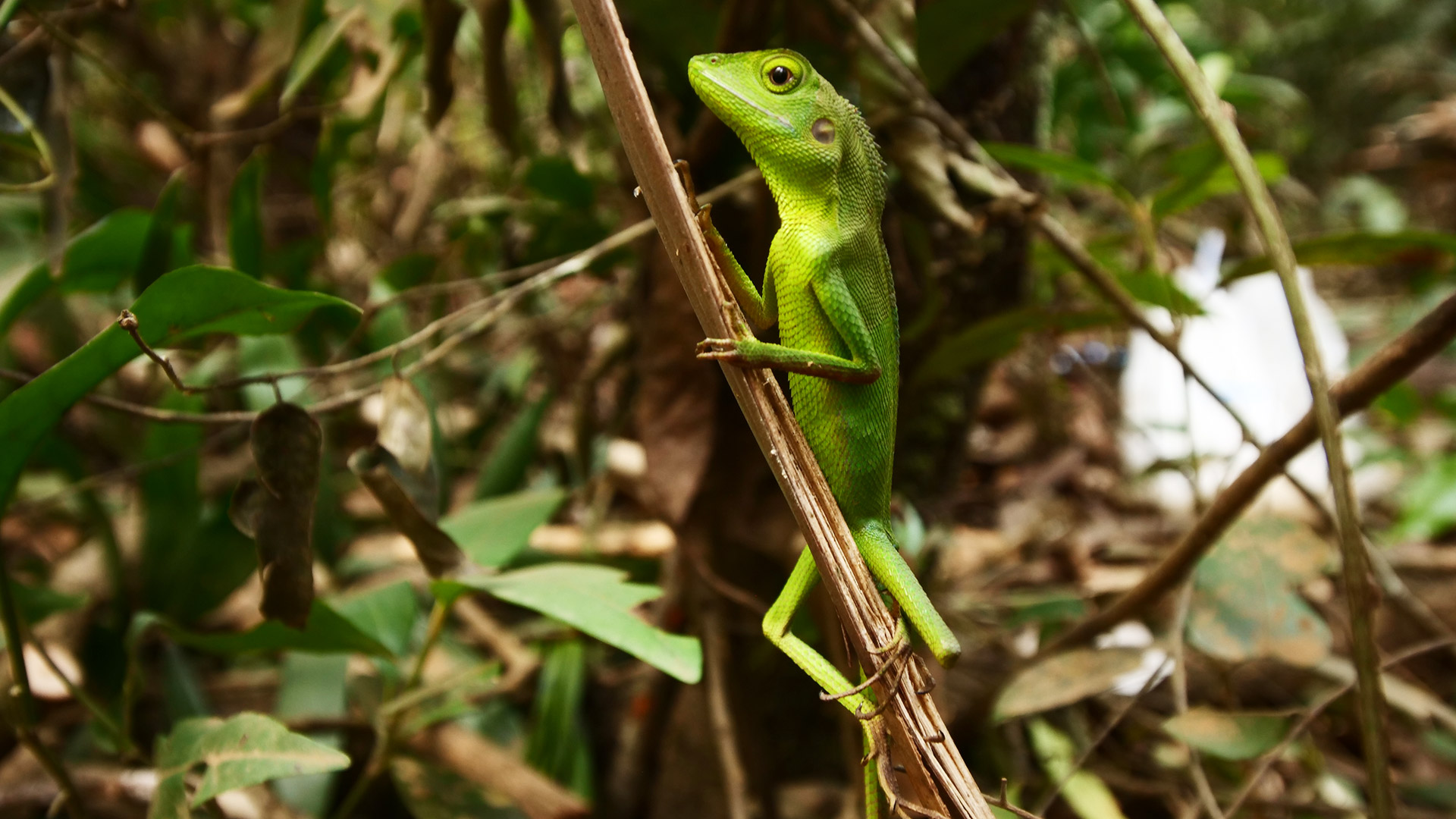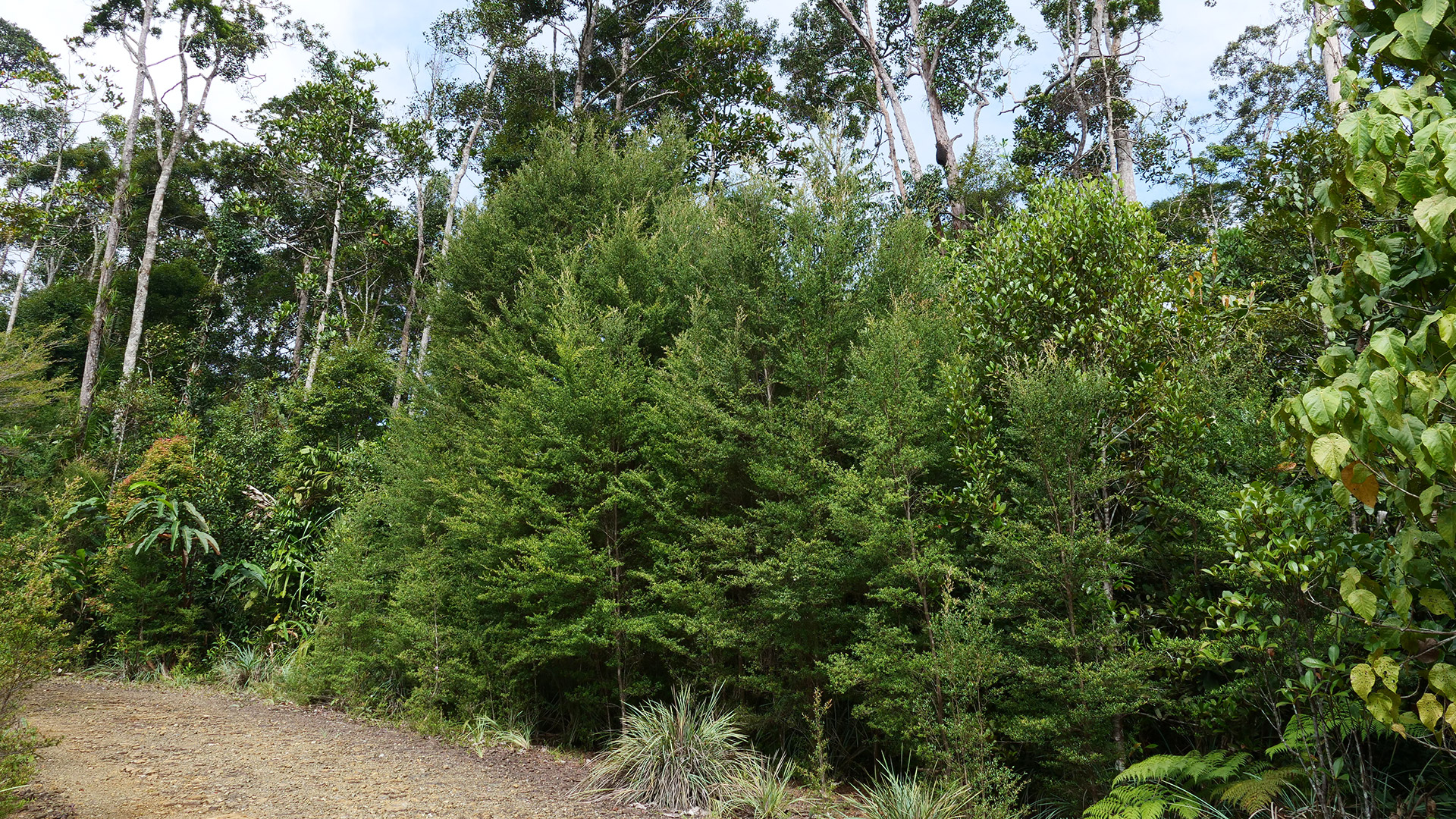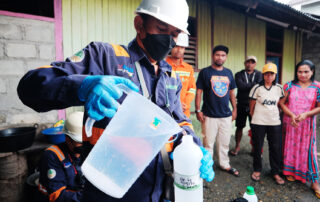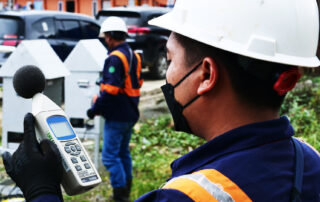Reducing our impact
In accordance with relevant laws and regulations, PT Weda Bay Nickel is systematically reforesting or providing compensation for areas exploited with the goal of achieving zero biodiversity loss.
The extraction of natural mineral resources from beneath a forest has environmental consequences.
Mining operations follow a comprehensive cycle involving various stages, from exploration to land restoration, guided by a formal mining plan that incorporates strategies to “Avoid, Mitigate, Rehabilitate, and Compensate” for the impacts of mining activities.
It is crucial to evaluate our impact by assessing biodiversity characteristics.
Rehabilitation
Study and learn
Before commencing mining activities, PT Weda Bay Nickel consistently engages Indonesian experts (including those from Khairun University in Ternate) and international specialists to conduct surveys on local fauna and flora to identify and document existing species. Further studies are conducted to enhance the company’s Biodiversity Action Plan in accordance with IFC standards.
The findings from these impact assessments are submitted to the appropriate authorities before any new or expanded operations can proceed.
Rehabilitation
Harvesting 48 local species
Our environmental team gathers native seeds and cuttings, which are then cultivated in our nursery with a capacity of 180,000 plants.
A total of 48 local species have been selected for the forest restoration efforts.
Additionally, two more nurseries are set to be established in the future and they will all be located as near as possible to the new mining site.
48
endemics species
for forest restoration
Rehabilitation
Restored forest
The planting carried out in 2010 using endemic seeds and cuttings selected by our team has yielded positive outcomes, with trees reaching heights of up to 20 meters – comparable to those in the natural forest. Local flora and fauna have begun to reappear, indicating a successful restoration of the forest ecosystem.
Rehabilitation
Revegetation
Mining operations are part of a long cycle that includes a series of phases, from exploration to land reclamation, with a formal mining plan that includes measures to “Avoid, Mitigate, Rehabilitate and Compensate” for the impacts of mining activities.
This is part of our environment alcommittment.
Reinforcement of watersheds
In addition to rehabilitating and revegetating mining sites, PT Weda Bay Nickel is actively enhancing watersheds.
In 2023, 869 hectares of watershed areas outside the mining concession were rehabilitated in compliance with Indonesian regulations, bringing the total to 1,944 hectares since 2020.

